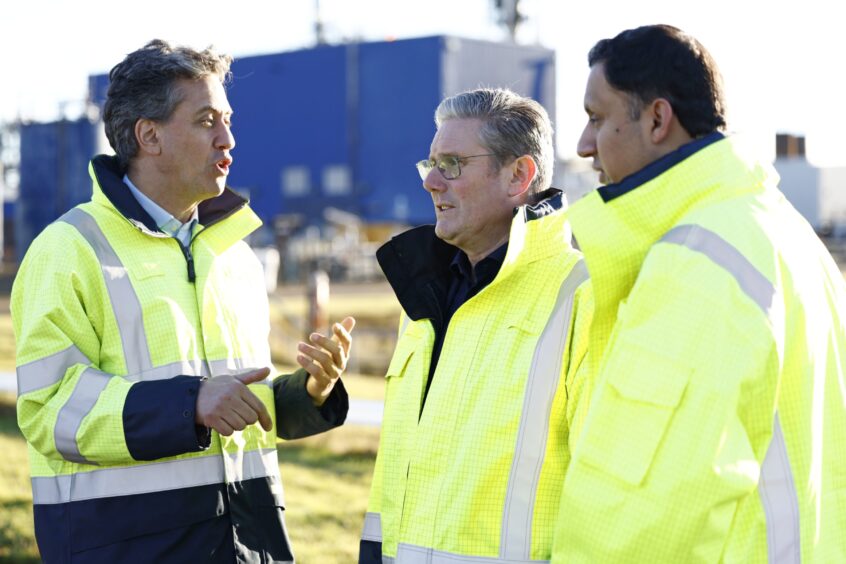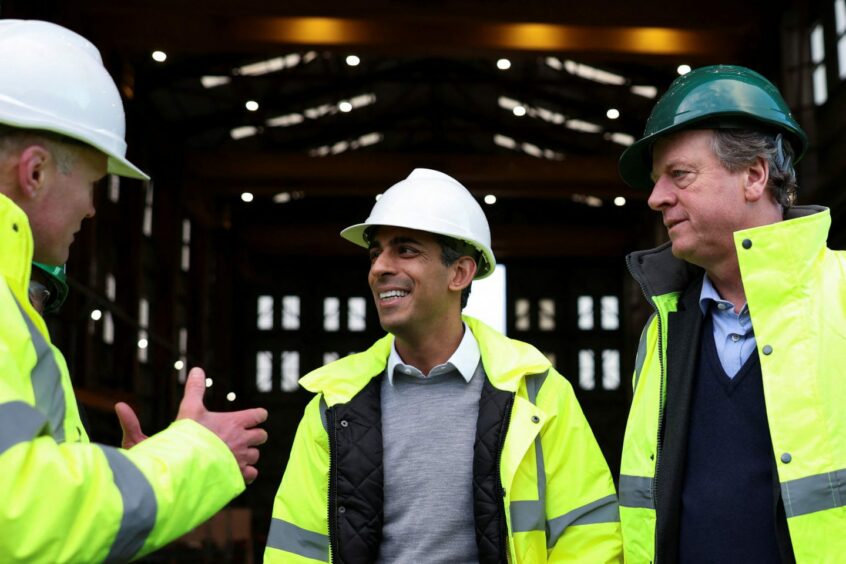With a general election looming, Offshore Energies UK boss David Whitehouse says the industry wants to “work with every political party.”
The Offshore Energies UK (OEUK) chief executive says this as the Conservative Party lags behind Labour in the polls in a year when UK voters look to head to the polling stations.
Mr Whitehouse and his team are in discussions with the political parties of the UK to reduce the uncertainty that may be felt by energy firms as the country looks to potentially change governments.
The trade body boss: “The more we can get consensus around, yes, we need to deliver a successful energy transition, but our domestic oil and gas sector has a critical role to play in it. I think the more confidence that builds in those investing in the sector.
“So yes, we have a general election coming up but the thing we are working hard with all parties is driving for that consensus about how important it is that we deliver and how important it is that we support our existing domestic oil and gas sector in that process.”
This is important as last year saw much debate around the future of oil and gas production in UK waters with the conservatives pushing to “max out” reserves while Labour put forward plans to end licencing.
In 2023 Labour outlined plans to “manage our existing fields for the entirety of their lifespan,” claiming it “won’t turn off the taps by revoking existing licences”.
The signalling from Labour and the Tories paints very different pictures of how the oil and gas sector will look depending on which way the ballots fall.
However, despite the wildly different messaging from the two front runners, OEUK says that the UK’s political parties are largely on the same page when it comes to the future of the energy sector.
“I think increasingly throughout the year the conversation moved to one that had become much more recognising that the way as a county that we will be successful in getting our sectors together,” Mr Whitehouse said.
“Every single political party that we’ve engaged with talk about the importance of ‘You cannot deliver a just transition, you cannot take care of your public services without a strong economy.’ and I’ve been speaking to all of the political parties.”
He said that following his talks there has been a “much better realisation” of the importance of the offshore energies sector.
This is not the first time that OEUK has shared the idea that representatives from across the political spectrum are more united than they appear at first glance.
Last summer OEUK’s external relations director Jenny Stanning told attendees at Aberdeen’s Offshore Europe event that “all of our political parties” have demonstrated a commitment to energy security.
Ms Stanning added: “They don’t want to turn the taps off on the North Sea straight away, they don’t want to threaten jobs or the communities that depend on this industry throughout the country, albeit the short-term policies they’re perusing threaten to do just that.
“That’s not all that unites them, they all love our supply chain, they want our people and their expertise, they enjoy our export success and even on fiscal policy, there’s something that unites everybody.”
‘We mustn’t take our eye off the really fundamental piece about what this sector does’
Mr Whitehouse says it is “important” that the trade body ensures the concerns of the UK’s offshore energies sector are represented in the policies presented before the ballots are counted.
He said: “Politics is going to be important, but we mustn’t take our eye off the really fundamental piece about what this sector does, delivering energy and making sure we’re doing it safely, efficiently and increasingly with lower emissions.”
However, the political uncertainty that comes with an upcoming election and the widely reported fiscal uncertainty energy firms are being faced with in the UK do pose questions on what actions the UK sector will be confident to take in the coming 12 months.
The OEUK chief executive said that “it’s important for Scotland and it’s important the industry that we create an environment” where investment does not drop during times of uncertainty such as elections.
The OEUK boss looks to continue investment in the energy sector as he hopes to see the first final investment decisions made in the carbon capture storage space.
Last year it was reported that since the implementation of the controversial energy profits levy (EPL), or windfall tax, 90% of North Sea oil and gas producers had cut spending.
This is still a problem that firms will be faced with in 2024, as Mr Whitehouse explained: “There’s no getting away from it. I think the impact of windfall taxes on any business is always ultimately negative, just that lack of lack of certainty, lack of surety, it does detract investment.
“I think that has been the outcome of the changes to the tax regime in 2022.”

The OEUK chief executive says that the taxation legislation that brought the headline rate of tax for North Sea producers to 75% is something “the industry is still dealing with.”
Last year the current UK government implemented chnages to the EPL, outlining that the legislation would scrapped if oil and gas prices fall to “historically normal levels”.
For the tax rate to drop, both average oil and gas prices need fall to, or below, $71.40 per barrel for oil and £0.54 per therm for gas, for two consecutive quarters.
At the time of the announcement, some industry commentators said the conditions laid out by the government ensure that the clause would “never kick in.”
Mr Whitehouse commented: “We need surety, we need long term planning and we do need, when conditions are right, we need a fair tax regime.”
Delivering this “fair tax regime” is something that OEUK has engaged in talks with the current UK government, the opposition, and the Scottish Government about.
Recommended for you




 © PA
© PA © PA
© PA






